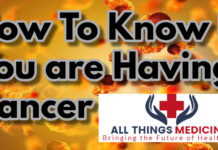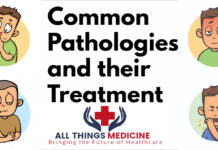Page Contents
You might have heard about chickenpox or shingles many times in your life but merely about the emerging disease Ramsay Hunt Syndrome. Sibling connection between chickenpox, Ramsay hunt, and shingles is the agent causing the infection that is Herpes zoster virus or varicella-zoster virus. We also refer to Ramsay Hunt syndrome as Facial nerve palsy or herpes zoster oticus. This neurological disorder affects the facial nerve close to any of the ears or mouth. Consider learning about Ramsay Hunt to help yourself and your loved ones in this article.

What is Ramsay Hunt Syndrome (RHS)?
Early in your childhood, you may have chickenpox because of the varicella-zoster virus. After the incubation virus becomes inactive but stays in your nerves for years. Anytime in your life, the Varicella-Zoster virus reactivates in your facial nerves, which will lead to a condition of facial paralysis or facial palsy. People experience severe pain and rash in any part of the face, especially the ears and mouth. This medical condition is Ramsay Hunt Syndrome. The neurologist and the person who got it in 1907 gave it the name Ramsay Hunt. The reactivation of the virus can be the effect of any physiological stress or autoimmune response.
Every year, 5 in a hundred million people are infected with 7% facial nerve damage or paralysis. In children, malnutrition plays a vital role in the neural complication causing Ramsay hunt syndrome.
How are Shingles and Ramsay Hunt a sibling:
There is a close association between shingles and RHS that the causative agent is Varicella zoster. We can also say the shingles virus reactivates resulting in Ramsay hunts syndrome because of stress or a weak immune system. Shingles can cause infection in any of the nerves of the body while Ramsay Hunt infects the facial 7th cranial nerve.

Ramsay Hunt syndrome symptoms:
Herpes zoster oticus show varying signs and symptoms of damage among individuals. People experience one sign of infection at a time like rash or paralysis can’t happen simultaneously. Due to the Ramsay Hunt syndrome, people have difficulty smelling, smiling, and winking because of cranial nerve damage.
The person’s face appears saggy or D-shaped. This paralysis occurs only on one side, causing drooling and an inability to control eye movement. The facial nerve damage can be mild or severe, but the effects are visible such as rash or blisters inside the ear. This ear infection is worse as you may lose hearing power, tinnitus means hearing a ringing sound, extreme sensitivity to sounds, middle ear infection with unbearable pain, etc.
You can expect huskiness, dry and irritated eyes, and vertigo because of the damage caused by the varicella-zoster virus.
Types of Ramsay Hunt Syndrome:
Before discussing the types, I would like to share an interesting fact about RHS. Ramsay Hunt is not contagious until you come in contact with the fluid from popping blisters. In case of contact, you will have experience chickenpox, not RHS.
Three types of Ramsay Hunt infections are documented:
Ramsay Hunt syndrome Type I: The cerebral Ataxia, twitching movements of voluntary and involuntary muscles, seizures, and dementia are RHS type I disorders.
Ramsay Hunt syndrome Type 2: Caused by Herpes zoster virus resulting in facial nerve damage. The dormant virus of chickenpox reactivates, causing ear infection the ear or facial paralysis.
Ramsay Hunt syndrome Type 3: Very little is known about this type. However, it is stated that Ulnar nerves become irresponsive if this type hits you.
Treatment and chances of Recovery from Ramsay Hunt:
After a thorough examination, clinical tests, and identification of symptoms, a healthcare practitioner can make a diagnosis. It is difficult to identify the Ramsay Hunt Syndrome from Bell’s Palsy and shingles. There are treatments available along with physiotherapy to improve the overall condition of facial muscles and nerves.
Medicines such as Acyclovir and famciclovir are used for anti-inflammatory properties, capsaicin for neural complications, corticosteroids act as antiviral, and pain relievers are used to help the patient suffering from RHS. In critical cases, these medications may not be therapy and lead to permanent facial nerve damage or hearing loss.
US food and Drug Administration (FDA) has approved the use of certain medicines such as capsaicin and carbamazepine to ensure corneal protection and avoid seizure attacks in Ramsay Hunt syndrome. Also, one can have a vaccination for chickenpox to prevent the varicella-zoster virus reactivation.
You can assume your cranial facial nerve is an optical fiber containing multiple small wires. If your optical fiber (Cranial Nerve) is damaged recovery is impossible. While if your inner wire is damaged, about 70% of people show almost natural facial movements and functions after recovery.
Natural Treatment
Health and relief from discomfort. It is recommended to clean the infected area frequently to avoid the progression of infection. Using a wet compress is beneficial if applied to the rash area. You can use ibuprofen and over-the-counter medications to absorb the pain.
Dr. Babak Azizzadeh, of The Facial Paralysis Institute, states that a facial Botox procedure for nerve recovery and neuromuscular retraining is helpful. But still, Ramsay Hunt’s cure from acupuncture, Botox, and the use of the natural herb is unknown.
An early visit to your general physician can save you from more damage. The more you delay, the more you will pay!
Key Take-aways:
Ramsay Hunt Syndrome is caused by the virus Varicella-zoster, also a causative agent of chickenpox and shingles. This DNA virus can replicate after years of dormancy inside the nerves. Thus, leading to the neurological disorder Ramsay Hunt syndrome. Though antiviral medications are effective, the results depend on the degree of infection caused by the Herpes zoster. In case of cranial nerve complete damage, you will experience flaccid paralysis of the face from one side. In critical conditions person may have seizures, vertigo, neural or spinal complications, or permanent hearing loss. When having RHS person may feel weak, confused, or dizzy due to the effect on the middle earlobe and neurons. Anyone with rash, headache, and paralysis should visit the doctor as soon as possible.













